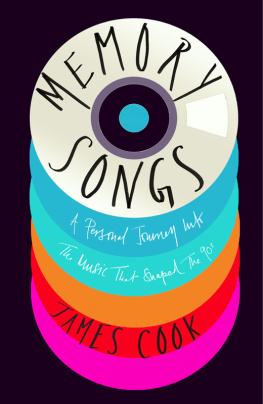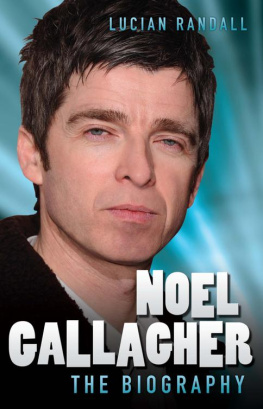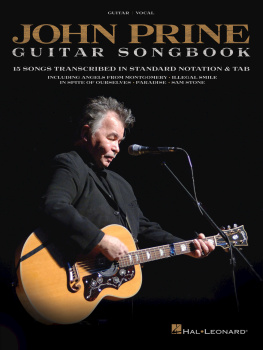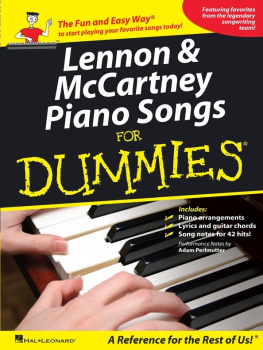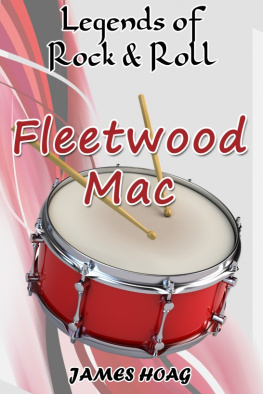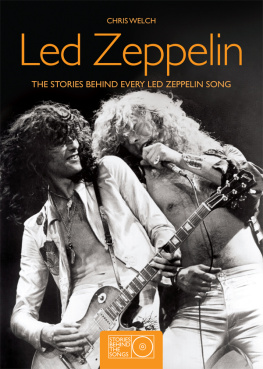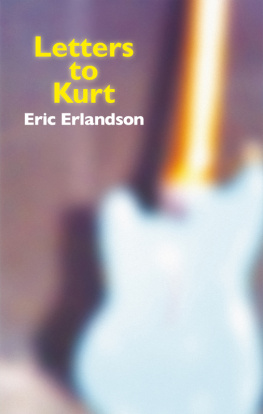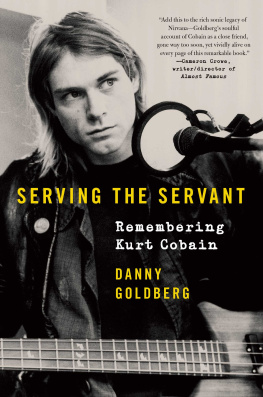
Originally a musician and songwriter, James Cook released two albums with his band Flamingoes: the critically acclaimed Plastic Jewels in 1995 and Street Noise Invades the House in 2007. Present from the start of the Britpop boom, Flamingoes toured the UK and Europe extensively, selling 20,000 records worldwide. In 2009, one of Jamess short stories was featured in the collection Vagabond Holes alongside work by Nick Cave and Man Booker-winner D. B. C. Pierre. James has written about music for the Guardian and Litro magazine among others. He lives in London.
With special thanks to
Yvonne Enright
Ian Tuton
Simon Williams
To Mum and Dad, with love and thanks
Dear Reader,
The book you are holding came about in a rather different way from most others. It was funded directly by readers through a new website: Unbound. Unbound is the creation of three writers. We started the company because we believed there had to be a better deal for both writers and readers. On the Unbound website, authors share the ideas for the books they want to write directly with readers. If enough of you support the book by pledging for it in advance, we produce a beautifully bound special subscribers edition and distribute a regular edition and ebook wherever books are sold, in shops and online.
This new way of publishing is actually a very old idea (Samuel Johnson funded his dictionary this way). Were just using the internet to build each writer a network of patrons. At the back of this book, youll find the names of all the people who made it happen.
Publishing in this way means readers are no longer just passive consumers of the books they buy, and authors are free to write the books they really want. They get a much fairer return, too half the profits their books generate, rather than a tiny percentage of the cover price.
If youre not yet a subscriber, we hope that youll want to join our publishing revolution and have your name listed in one of our books in the future. To get you started, here is a 5 discount on your first pledge. Just visit unbound.com , make your pledge and type memory5 in the promo code box when you check out.
Thank you for your support,

Dan, Justin and John
Founders, Unbound
Contents
Memoria
Memoria
Memoria
Come As You Are, Nirvana
Intro
In the autumn of 1992 I was a twenty-four-year-old unemployed musician living in a damp Muswell Hill bedsit. Under stringent conditions a seven-day working week I had been writing songs with my twin brother, Jude. So far, 250 tunes had been amassed. Wed been in the Smoke for over four years, and still hadnt made it yet. The prognosis wasnt good.
Demos had been recorded, dismally empty gigs endured, plans ripped up and Year Zeros declared a number of times. Several record labels had taken an interest; none had offered a deal. We were sans manager and making the kind of daily either/or decisions every penniless musician knows only too well: food versus cigarettes; amp repair versus electricity bill; proper job versus an insane artistic project that has become increasingly indefensible to friends, girlfriends and every member of your family.
Ever since writing my first callow lyrics aged fourteen, Id been striving to develop as a songwriter, learning different instruments, mastering the studio (we recorded and rehearsed day and night at a place called La Rocka our very own Paisley Park, only in Tottenham Hale). But up to this point there was very little to show for it. I dont mean fame. The mission was never to be famous, in some kind of X Factor -ish way, but to escape a Hertfordshire small town and make great records. That was the mantra. To experience those moments of glory from having created a work of art an album that my twin was fond of talking about. (How close the language of earnest young men who form rock groups is to that of radical fundamentalism.) Why dont you both just start a boy band, and get it over with? a former girlfriend suggested, my brother and I being passably presentable. Maybe she meant something similar to Bros. But Bros wasnt what I had in mind when I first picked up a guitar. Oh, no. John Lennon and Jimmy Page were the role models, and I laboured every day to produce music that even touched the hems of their Carnaby Street garments. Brian Wilson and Burt Bacharach, too serious songwriters. Songwriters songwriters .
Yet by the end of 1992, weary and recycling each teabag a dozen times, I was beginning to question my purpose and sanity. Four penurious years in the city had left me with a dangerously warped mind. As Kurt Cobain sang, something was in the way.
But I still liked to watch television, every now and again.
One bleak Thursday night in September, after a fully balanced evening meal of spaghetti, two fish fingers and half an onion fried in economy marge, I repaired to the sitting room to watch Top of the Pops . (Not a long walk: it was conveniently located only a few inches from the kitchen.) I was anxiously awaiting the debut performance of a group that had special significance for me, the best new band in Britain, Suede.
There was a chance, however, that my precious television ailing for months wouldnt survive to the end of the transmission. This was troubling: if it broke, there was no money to buy a new one. And, anyway, the shops were closed.
Suddenly, they were on. My chest tightened. Despite, or because of, the tiny white portable set with a coat hanger for an aerial, they sounded pretty good. Vital, feral, alive. Eschewing caution, I turned the volume up to ten, the noise threatening to split the cheap plastic sound-hole. The picture quality was so poor it appeared as if they were playing inside a carwash.
Through the televisual froth, the singer, Brett Anderson, sashayed in a fair impersonation of Morrissey; flicked his fringe as if he was Bryan Ferry. In profile, he revealed an impressively aquiline, almost Bowie-ish nose. He sang the words to the verses (I could only make out lover-ly and glitter) with a Johnny Rotten snarl on his lips. The sheer ardour of his performance was entrancing. The song Suede were playing, Metal Mickey, lacked the regal beauty of their first single, The Drowners, but compensated for this with a sort of unreserved self-assurance. The kind of swagger a song can only gain when its writers have come into contact with adulation for the first time: the difference between Love Me Do and Please Please Me. This was a group that had been given permission to surpass themselves. Oh Dad, shes driving me mad , went the chorus. It could have been a line from Carry on Matron , spoken by Kenneth Connor. Yet they didnt seem like they were joking, especially the guitarist, a slight, bolshie looking young man (who went by the mild-mannered name of Bernard). He thrashed and writhed, and sometimes punched the top of his Les Paul.
Hang on a minute, a Gibson Les Paul?
No indie musician had ever dared to play that guitar in this way using distortion, bending notes while wearing a wide-collared shirt. It was a flagrant allusion to the 1970s: Mick Ronson, Marc Bolan, Jimmy Page. And he was doing it on national television. This, I thought, could have serious implications for the countrys youth. The drummer was pretty cool, too. Loose-limbed, smiling; at home behind his kit, like the captain of a new yacht. His name was Simon Gilbert. I had a special interest in Simon, because, only eighteen months before, he had played drums in my band. Let me explain
Next page
